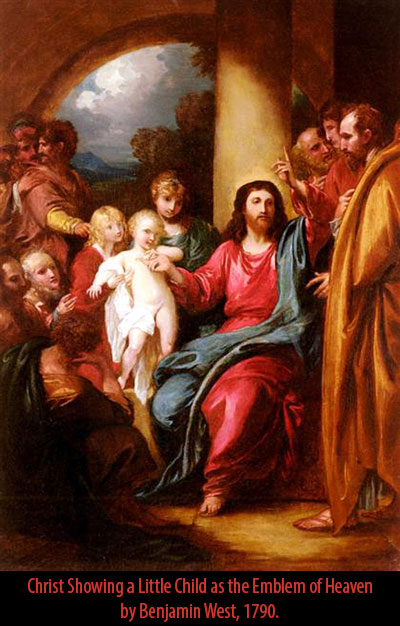They went on from there and passed through Galilee. And he did not want anyone to know, for he was teaching his disciples, saying to them, “The Son of Man is going to be delivered into the hands of men, and they will kill him. And when he is killed, after three days he will rise.” But they did not understand the saying, and were afraid to ask him.
And they came to Capernaum. And when he was in the house he asked them, “What were you discussing on the way?” But they kept silent, for on the way they had argued with one another about who was the greatest. And he sat down and called the twelve. And he said to them, “If anyone would be first, he must be last of all and servant of all.” And he took a child and put him in the midst of them, and taking him in his arms, he said to them, “Whoever receives one such child in my name receives me, and whoever receives me, receives not me but him who sent me.” – Mark 9:30-37
Jesus has spoken in all kinds of symbolic language. Parables are purposefully that, but He has said other kinds of coded or figurative things to the disciples. Even the miracles are a kind of symbolic speech. But in the passage above, Jesus speaks plainly to them: “The Son of Man is going to be delivered into the hands of men, and they will kill him. And when he is killed, after three days he will rise.” It has been established that “Son of Man” is mainly the way Jesus refers to Himself (read “I”), and He tells them straight-up what will happen. They apparently think it is a veiled sort of statement and have good reason to think so. They can’t seem to figure it out and are afraid to make fools of themselves by asking Him.
No such fate could befall any messiah they were expecting. Probably not all Jews at this time believed God would send a messiah; but whether or not all or most or some believed it, there is no doubt that no one was expecting a messiah who would suffer, much less die! That He would rise again in 3 days adds further mystery to the saying, thus they are confused and afraid. Perhaps Peter’s recent rebuke has kept him silent, although those who know the rest of the story know that Peter doesn’t keep silence very long.
Faced with the difficulty of having their earlier ways of understanding things changed, they turn to discussing (debating?) their own individual status. It would seem that they hoped that by following Jesus they would enhance their own individual office and self-worth (as N.T. Wright says, “so highly prized today, but so easily leading to a narcissistic sense that the gospel exists to make us feel good about ourselves”). This was such a focus for them that they could not hear what God was saying to them. Worry about their status was winning out; they want to be as high up on the privy counsel to the King as possible. Sadly, they keep this view through the next several chapters of Mark’s gospel until the shocking truth dawns painfully.
Jesus then offers a stark illustration after asking what they were talking about. “And He took a child and put him in the midst of them, and taking him in His arms, He said to them, ‘Whoever receives one such child in my name receives me, and whoever receives me, receives not me but Him who sent me.’” They have upside-down thinking. That you would have to be last and servant of all to be first is completely upside down from their way of reasoning. But Jesus says this is not just the way to access royalty (Him), but even to access divinity (“Him who sent me”). And that’s the gospel!
